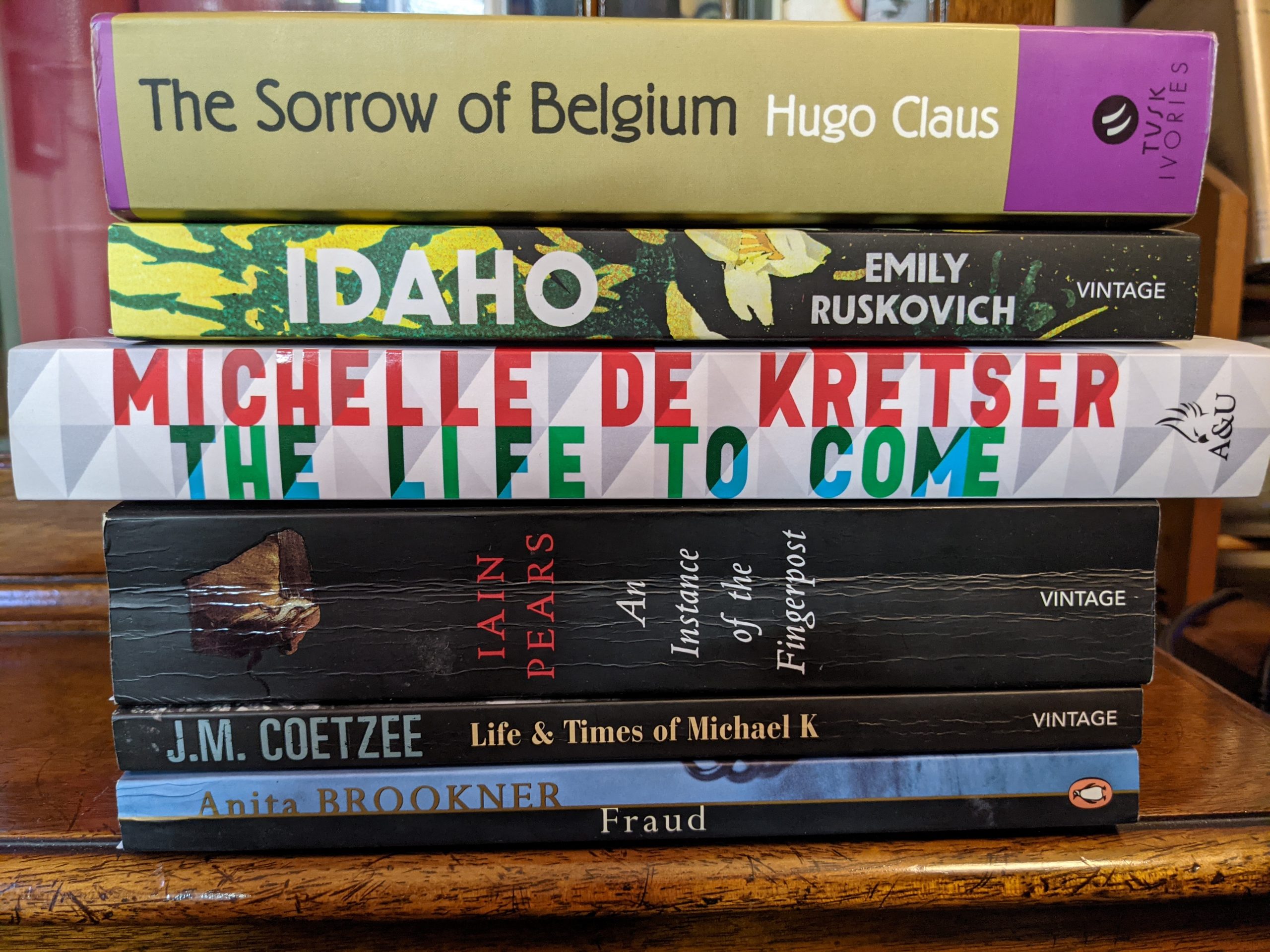
The podcast Backlisted had gotten me interested in Anita Brookner, and Fraud, and I’m glad I ventured into her carefully disguised, but probably 1960s insular London world, where the unsexy themes of aging, loneliness and domestic servitude are freshly explored. It brought to mind to The Old Wives Tale that I read only earlier this year, in that the romantic and social aspirations of the main female characters fell away to more immediate needs of monetary survival and familial duties. Although you could call it a dour novel, I found it a wonderful and unpredictable read – can you be truly happy in caring for others and denying your own needs? 4.5 stars.
Is there anything that Coetzee doesn’t do well? Life and Times of Michael K was completely captivating (reminding me of the The Road by McCarthy) in its nihilistic personal journey amidst a civil war in South Africa. Another sad, miserable story you say? Yes, but the sparse style and deep empathy for Michael are completely engrossing, and the narrowed, mute life he finds for himself is sad, redemptive, and completely believable. A total triumph that haunts. 4.5 stars.
Although a bit of a slog in parts, the dense, ambitious and carefully researched An Instance of the Fingerpost by Iain Pears was quite the labyrinthine political whodunnit 1660s journey through Britain and Italy – worthy of the Umberto Eco tag. There were times that I got lost in the technicalities of the plot(s), mistaking characters for others (often not spelled out deliberately for intrigue), so perhaps a little complex and long for me, but I loved the technique of giving quarters of the book over to the first person perspectives of key players – someone you thought was good was revealed later to have betrayed etc. My opinions kept shifting on the culpability of many, making for an unpredictable finish. There are many injustices within, making it hard to take at times, however I’m full of admiration for anyone attempting a work like this. What a mini-series it would have made. Not for everyone – 4 stars.
After my last three books, The Life to Come by De Kretser felt a little light and fluffy, but she’s not writing in the same space at all. There’s some terrific language and inventive phrasing here, but it felt choppy and uneven at times. It read like a commentary on modern relations in our busy world – people glancing briefly against each other and then they’re on to new things -self absorbed and shallow. A reviewer called it “a study of modern day, globalised, well-meaning tactlessness”. Another calls it deeply moving, though I’m not sure I agree on that! 3 stars.
Although not my usual stomping ground, I thought I’d try Idaho by Emily Ruskovich, as it promised “unflinching and devastating” which peaked my interest. Unfortunately, once you read incredible sparse writing like that of Galgut or Coetzee, it always feels like a stepdown, especially when it takes twice as long as needed to work through your story – the book was/felt way too long (even at 305 pages). I enjoyed the prison interactions, the tender descriptions of care for a floundering partner, and the healing, feel-good (American?) ending, but ultimately, I was just glad to finish. 3 stars.
The dated looking, odd-coloured and wonderfully titled The Sorrow of Belgium by Hugo Claus (1983) felt like a book I had to read. Although it took me 6 weeks, I worked my way though this dense Dutch translation and was rarely not intrigued by the inhabitants of Walle in West Flanders (Belgium) before and during World War 2. Pretty quickly I found myself struggling to work out the political sympathies of the families and individuals (so many!) – all struggling to live through the life-changing period of German occupation, where opportunistic alliances or minor betrayals routinely led to flight from authorities, work camp internment or to survival. I found the Flemish/French cultural battles hard to understand at times, however the picaresque domestic relationships of all the uncles and cousins and neighbours were amusing and varied. The coming of age of Louis was completely believable, although the first third of the book detailing his schooling at the convent was probably the least interesting part. I wouldn’t recommend this book to anyone really, since, as a reviewer stated it was “an hallucinatory fresco” at times and perhaps unsatisfying in some ways. 3.5 stars.